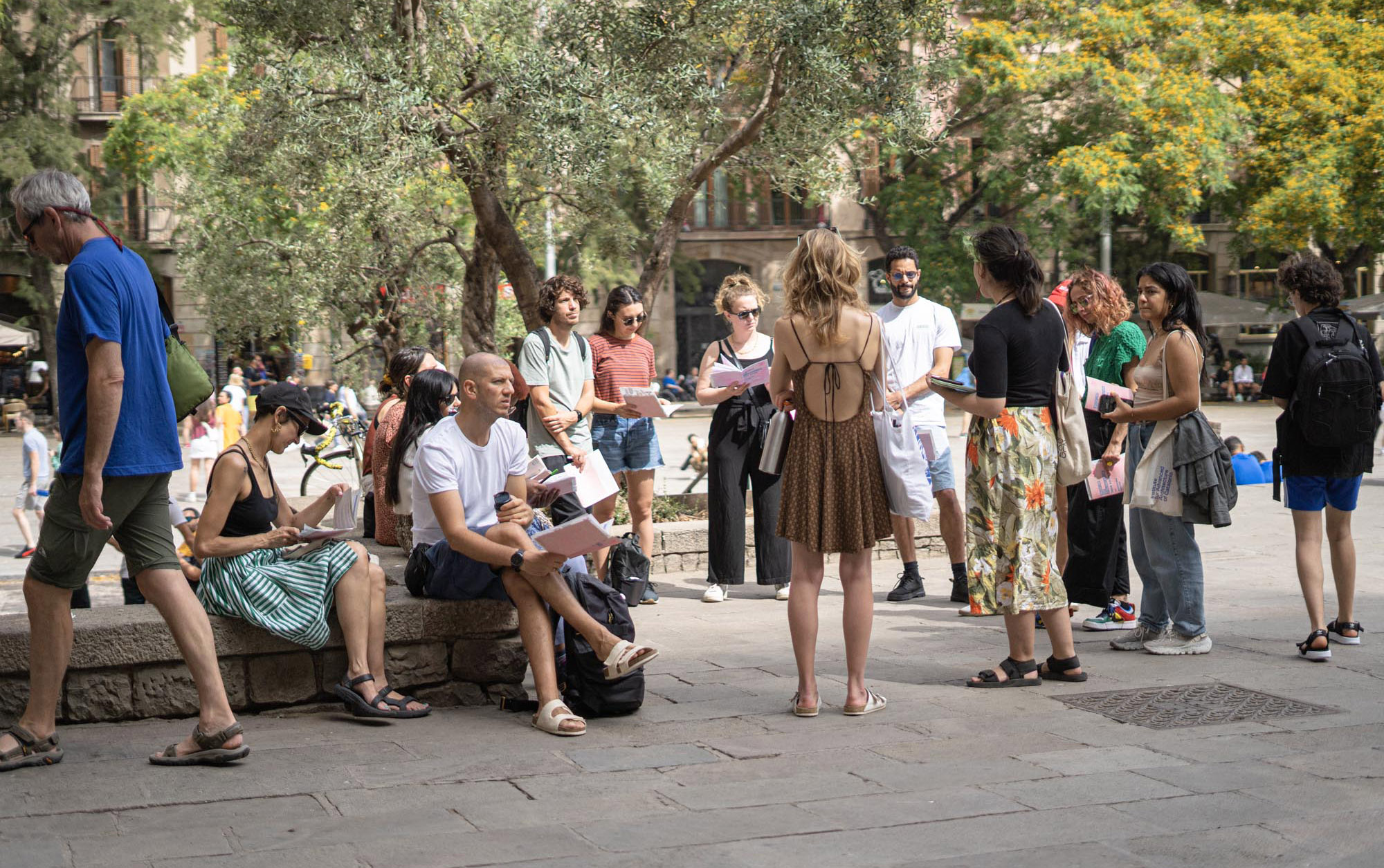Welcome to the MDEF Library where you will find all the detailed information for MDEF program. You can check back as new course information becomes available.
If you need to consult general program information, you can see the program booklet.
On this website you will find syllabi, reading lists, schedules, and faculty details, among other resources.
Program overview⇝
MDEF is both a theoretical and practical Master. It evolves the practice of design beyond objects, aesthetics, form finding and pure speculation through a unique hands-on-learning approach. Our method uses practical design processes to investigate complex systemic problems and proposes city-scale interventions to approach large-scale challenges.
The master has four pillars: Exploration, Instrumentation, Reflection and Application. These provide a structure for students' own personal and professional exploration and build the strategic vision and flexible skill set to design in uncertain times.
Students develop their technical capabilities through the global Fab Academy program. This program equips students with working knowledge across the multiple disciplines of a Fab Lab from coding to digital fabrication. By the end of the Master students will be competent in a range of maker skills which they can apply to their final projects. At the same time, MDEF asks students to critically engage with the fields of speculation and foresight studies; they assess the role of disruptive technologies such as digital fabrication, blockchain, synthetic biology, Artificial Intelligence in the current transformation of society. Critically analysing our today helps students design for the futures that are emerging.
The practical and theoretical aspects of the Master are combined to develop a portfolio of strategies, reflections and prototypes as well as a final project. Investigation is situated in Barcelona city, where students can collaborate with local stakeholders to apply their knowledge to human centered needs. The final project is a ‘design intervention', that is, a solution or response in the form of a product, platform or deployment. Working on hyperlocal interventions gives students a tangible design output that responds to a trend that is emerging at a global level and the potential impact of technology in business, education, society and culture.
Previous graduates of MDEF have proceeded to work in the subjects in which they specialised during the master. Specialist subjects ranged greatly – from understanding democratic governance and trust; questioning our food systems and how they will look in the future; new material development through synthetic biology; training fungi to consume chemical composites amongst many other varied topics facilitated by the unique environment created by the Master and Faculty.
The Master in Design for Emergent Futures approach has been developed out of the Exploring Emergent Futures platform at the Royal College of Art, London, a program developed by James Tooze and Tomas Diez since 2015. MDEF is dedicated to scaling up the impact of maker practices and reimaging how design can be central to enacting a paradigm shift towards preferred plural futures.
Tracks⇝
The Master is structured around four conceptual dimensions: Exploration, Instrumentation, Reflection and Application.
These four tracks provide designers with the strategic vision and tools to work at multiple scales in the real world. The theoretical and practical content in the program recognises and explores the possibilities of disruptive technologies: digital fabrication, blockchain, synthetic biology, Artificial Intelligence and others.
Instrumentation
Students learn a modular set of maker skills and tools and how these can be used in the design process to translate their ideas into prototypes and prototypes into products. Skills include coding, digital fabrication, hardware design, synthetic biology, and computational thinking.
Exploration
Students are exposed to a set of technologies and sociocultural phenomena that have the capacity to disrupt our present understanding of society, industry and the economy. Technologies include Artificial Intelligence, Blockchain and Distributed Ledger Technologies.
Reflection
Students are supported through individual and group reflection sessions to develop their own identity and skill set, knowledge and attitude as designers. A series of presentations and visits from key professionals helps make students aware about how their thinking, making, interests and values differ from others.
Application
Students create design responses to explore their curiosities through innovation. They are encouraged to be creative and follow a culture of making where prototyping acts as a generator of knowledge and experimentation is crucial for problem solving.
Recommendations⇝
Be supportive.
Encourage and support your fellow students. No one here is looking for your criticism, cynicism, advice, or judgment. (We can get those things on the rest of the Internet).
Share generously.
Your stories and experiences may be exactly what another student needs to hear today to solve a problem or seize an opportunity.
Be constructive.
We're here to push each other forward and lift each other up. Find ways to help each other think bigger, reframe challenges, and stay curious.
Don't spam, promote, or troll.
The program exists to help you learn. It's not a place to spam, promote, or bully anyone else.
Keep an open mind.
Yep, this isn't your average University course - you wouldn't be here if it was. You are encouraged at all times to keep your mind open and flexible. Embrace change, embrace the unusual - and trust the process.
